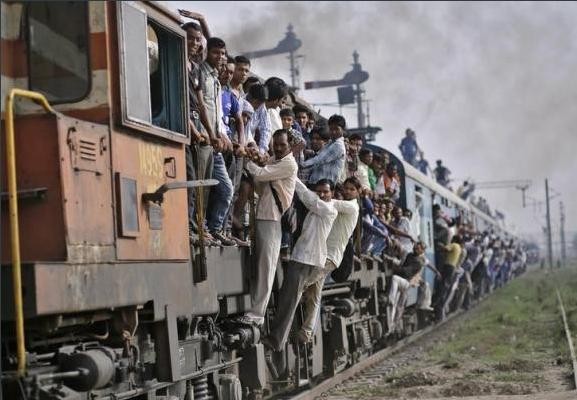China and India are discussing jointly building India's first high-speed railway, a 1,754-kilometer track from Delhi to Chennai that could cost 200 billion yuan ($32.6 billion), according to China Daily.
A high-level team of officials from India's Rail Vikas Nigam Limited led by Satish Agnihotri arrived in Beijing on Nov. 24 to meet with China's High Speed Rail Corp regarding the proposed construction of the Delhi-Chennai high-speed railway.
Once completed, the proposed railway would be the second largest in the world after China's own 2,298-kilometer-long Beijing-Guangzhou line. Bullet trains traveling at speeds up to 300 kilometers an hour would be able to traverse through the line connecting India's capital with the southern commercial and industrial city.
The Delhi-Chennai high-speed railway project is reportedly part of Indian Prime Minister Narendra Modi's "diamond quadrilateral" program that aims to build a network of high-speed trains between cities including Delhi-Mumbai, Mumbai-Chennai, Chennai-Kolkata, Kolkata-Delhi and Mumbai-Kolkata.
Back in September, President Xi Jinping during his state visit to India pledged investment opportunities, technical assistance and cooperation in the country's railway development efforts. As promised then, China agreed to shoulder the full cost of the feasibility study for the Delhi-Chennai high-speed railway project. The conduct of the feasibility study is expected to be started early next year.
China then also agreed to provide training in heavy haul for 100 Indian Railways officials, the redevelopment of existing railway stations and establishments, and the creation of a railway university in India, according to the Economic Times.
Once the feasibility study for the proposed Delhi-Chennai high-speed railway project is done, Chinese companies are then allowed the opportunity "to provide new railway design, tracks made of durable materials, automated signaling for faster trains and modern stations that India's British-built rail system desperately needs," Feng Hao, a researcher at the Institute of Comprehensive Transportation at the National Development and Reform Commission, told China Daily.



























